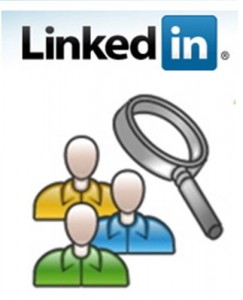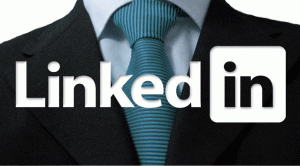We know that starting a new job can be a bit overwhelming and mistakes can be made, especially in the first month when new hires are still getting the lay of the land. And whether or not it’s fair, judgments are made about new employees—often very quickly.
 So, if you’re new to your role or you know someone who is, here is an onboarding checklist of 10 mistakes to avoid.
So, if you’re new to your role or you know someone who is, here is an onboarding checklist of 10 mistakes to avoid.
- Not showing up early enough
Arriving late for work sends an immediate negative message and a warning sign to your manager and coworkers, but showing up right on time can often mean cutting it close to being late. A best practice: why not show up early for your first couple of months, which will broadcast that you are reliable, eager to be there, and you’re are a team player? Showing up early also affords the opportunity to get to know your new coworkers more quickly, both on a personal and professional level.
Like this Article? Share It! You now can easily enjoy/follow/share Today our Award-Winning Articles/Blogs with Now Over 2.5 Million Growing Participates Worldwide in our various Social Media formats below:
LinkedIn: https://www.linkedin.com/in/chris-g-laughter-b46389198/
Facebook: http://www.facebook.com/pages/First-Sun-Consulting-LLC-Outplacement-Services/213542315355343?sk=wall
Twitter: Follow us @ firstsunllc
Best Daily Choice: Follow the Best of FSC Career Articles/Blogs @
https://twitter.com/search?q=bestoffscblog&src=typeahead_click
Question: Want the ‘the best/current articles/blogs on the web’ on Job Search, Resume, Advancing/Changing your Career, or simply Managing People?
Answer: Simply go to our FSC Career Blog below & type(#career, #leadership, #life) in Blog Search: https://www.firstsun.com/fsc-career-blog/
What Skill Sets do You have to be ‘Sharpened’ ?
Continue of the article:
- Isolating yourself
As the “new employee on the block,” you might be struggling to adjust, but it is important to resist the urge to keep to yourself. It’s very important to proactively get involved as much as possible at the beginning of a new job. Make it a point to have lunch with your new coworkers, regularly switching it up to meet and get to know new people. Be friendly and helpful and let them see the real “you.” By doing so, you will both accelerate your learning curve and get to know your new coworkers. Special and meaningful relationships will result.
- Being afraid to ask questions
Let’s admit it: no one knows everything. Especially not new employees. Thus, there is absolutely no reason for you to start a new role and feel like you need to immediately prove that you were the right person chosen for the job; you did that during the interview process. It’s much better to dive in and ask questions. Seek the advice, answers, and opinions of those who are more experienced. This is how you learn. One of the smartest people in history, Albert Einstein, once said: “The day you stop learning is the day you start dying.” Nothing could be truer.
- Being negative or engaging in gossip
Bringing positivity to the workplace is an awesome way to assimilate into a new work environment. Make an active effort to avoid negativity and the archetypical malaise and gossip around the water cooler. The last thing you want to be labeled as is as one of those actively disengaged employees.
- Failing to ask your boss how to best communicate with him/her
All bosses are different in how they prefer interaction with their employees. So why not ask them upfront? Do they prefer email, voicemail, instant messaging, a weekly meeting, or the always healthy in-person drop by? Do not assume your new boss communicates like the other managers you had before. Ask.
- Taking on too much work
There is an enormous gulf between trying to impress your new coworkers and burning yourself out with work volume. Relax. Rome was not built in a day. It’s much better to focus on work quality than quantity. After all, the number one reason people quit their jobs is stress/burnout. Your company wants an employee for the long term!
- Ignoring corporate culture
This is a big and very common error that can negatively affect the impression you make on your new colleagues. Rather than fall victim to culture blindness, actively seek to discover the following aspects of your new workplace culture:
- What are the organization’s beliefs, values, goals, and strategic mission?
- How do things get approved?
- How do people dress?
- What are the office politics? (Often difficult to identify without the help of a trusted coworker or boss).
- What are the unwritten “policies” that you would not find in the employee handbook?
- What are the organization’s policies vis-à-vis social media and the internet?
- How about the policies and expectations regarding personal cell phone use?
- What are the organization’s policies on being able to work remotely, as well as having flexible work hours?
- What are the absolute “No-Nos” of the culture or the acts and behaviors that are highly discouraged?
- What are the most common roadblocks to getting things done, as well as the corresponding workarounds?
Discovering the answers to these kinds of topics will hyper-speed your assimilation to a new work environment, delivering you to profound success.
- Not writing things down
When onboarding new employees, companies shower them with a waterfall of information, from new names and faces to tasks, assignments, technology, and even your boss’ preferences. It’s hard to remember everything, but having to be told the same things multiple times will make new hires look bad.
Numerous studies have shown that writing things down creates better retention of information, so it’s smart to take notes on everything during your first few weeks. For complex instructions, it’s always good to have notes you can refer back to later anyway. Writing things down also demonstrates an extra effort to your new coworkers and boss that you are engaged and care about doing a good job.
- Talking too much about your last job
You definitely do not want to be the person who is referencing their old job repeatedly. Simply put, the re-hashing of your old job to your new coworkers becomes stale pretty quickly. People might also interpret your remembrances as longing to have your old job back, which is obviously not the message you want to send.
- Failing to take initiative
There are always ways to go above and beyond what is expected. If you aren’t showing that initiative from the very beginning, it’s a missed opportunity to make a positive impression on your new boss and coworkers.
Start before you start. For example, prior to your first formal day, proactively ask your manager for recommendations on how you can prepare for your first day. Ask for reading materials about the company, its products and services, and employee communications such that you can prepare to onboard (e.g., notes from town hall meetings, employee newsletters, annual reports, a new hire checklist, etc.).
Once you start the new job, be quick to offer help to others. If meetings are optional, such as town halls or brown-bag lunch and learn, make it a point to attend. Seizing learning and development opportunities is an awesome way to establish yourself as a go-getter and accelerate your career and personal growth.
Onboarding new employees are hard for companies, but it’s even harder for new hires! Whether you’re about to start a new job or you have no plans on leaving your company, bookmark this onboarding checklist so you have it just in case! Being aware of potential pitfalls makes it much easier to avoid them.
FSC Career Blog Author: Kevin Sheridan is an internationally-recognized Keynote Speaker, a New York Times Best Selling Author, and one of the most sought-after voices in the world on the topic of Employee Engagement. For six years running, he has been honored on Inc. Magazine’s top 100 Leadership Speakers in the world, as well as Inc.’s top 100 experts on Employee Engagement. He was also honored to be named to The Employee Engagement Award’s Top 101 Global Influencers on Employee Engagement of 2017 & 2018.
Having spent thirty years as a high-level Human Capital Management consultant, Kevin has helped some of the world’s largest corporations rebuild a culture that fosters productive engagement, earning him several distinctive awards and honors. Kevin’s premier creation, PEER®, has been consistently recognized as a long-overdue, industry-changing innovation in the field of Employee Engagement. His first book, Building A Magnetic Culture, made six of the bestseller lists including The New York Times, Wall Street Journal, and USA Today. He is also the author of The Virtual Manager, which explores how to most effectively manage remote workers.
Kevin received a Master of Business Administration from the Harvard Business School in 1988, concentrating his degree in Strategy, Human Resources Management, and Organizational Behavior. He is also a serial entrepreneur, having founded and sold three different companies.
Links:
www.kevinsheridanllc.com
Twitter
LinkedIn
https://www.instagram.com/kevinsheridanllc/
Email: kevin@kevinsheridanllc.com
FSC Career Blog | March 11, 2020










